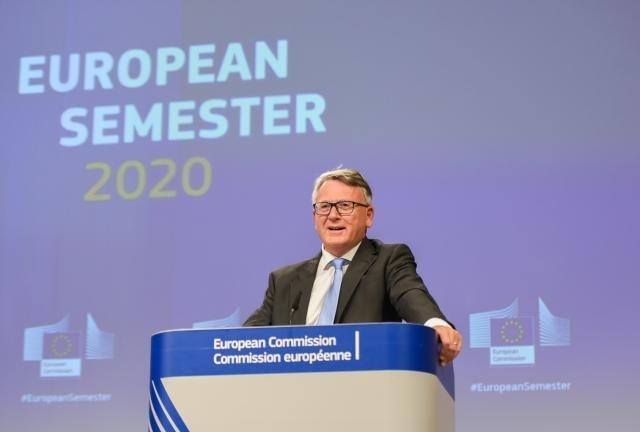The European Council has adopted the regulation establishing the new instrument for loans to fund national short-term work schemes during the coronavirus crisis.
The new scheme had been questioned by some member states. By agreeing on the scheme - Support to mitigate Unemployment Risks in an Emergency (SURE) - the member states passed a test in European solidarity. The initiative was first presented on 2 April and the adoption six weeks later was done in record time according to a Commission spokesperson (19 May).
All member states voted in favour of the adoption of the SURE Regulation. Financial support to them will become available once all member states have voluntarily committed and signed their guarantee agreements with the Commission. “We call on member states to do this as swiftly as possible,” the spokesperson said.
To finance the loans to member states, the Commission will borrow on financial markets, so-called sovereign lending with low risk. The Commission would then provide the loans to member states on favourable conditions. Member states would, therefore, benefit from the EU's strong credit rating and low borrowing costs.
However, the loans will only become available after all member states have contributed to the instrument with committed guarantees for an amount of at least 25% of the maximum amount of loans of €100 billion.
“With a new solidarity instrument, we will mobilise €100 billion to keep people in jobs and businesses running. With this, we are joining forces with member states to save lives and protect livelihoods. This is European solidarity,” European Commission President Ursula von der Leyen said when the initiative was announced for the first time.
According to the regulation, a member state may request Union financial assistance where public expenditure has suddenly and severely increased as of 1 February 2020 due to the adoption of national measures directly related to short time work schemes and similar measures to address the economic and social effects of the exceptional occurrence caused by the COVID-19 outbreak.
Short-time work schemes are public programmes that allow firms experiencing economic difficulties to temporarily reduce the hours worked while providing their employees with income support from the State for the hours not worked. Similar schemes exist for income replacement to the self-employed in emergency situations.
Compared to the temporary framework for state aid rules, where three countries (Germany, France and Italy) have together received 84 % of the total amount of state aid notified to and approved by the Commission, the share of loans granted to the three member states representing the largest share of loans is maximized to 60 % of the total amount.
The SURE instrument is not based on common debt since each member state will remain liable only for the amounts that it draws from SURE. European solidarity will be tested in earnest when the proposal for a €500 billion recovery fund will be discussed. The emergency fund, to be part of next multi-annual financial framework, will offer grants to the countries hardest hit by the coronavirus crisis.
M. Apelblat
The Brussels Times

